Related Research Articles
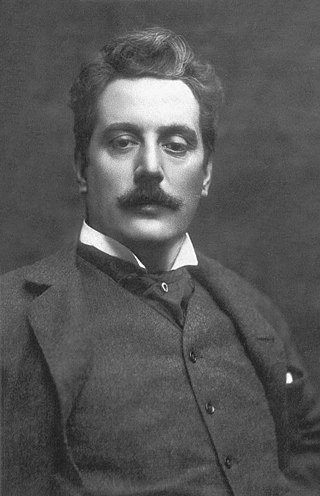
Giacomo Puccini was an Italian composer known primarily for his operas. Regarded as the greatest and most successful proponent of Italian opera after Verdi, he was descended from a long line of composers, stemming from the late-Baroque era. Though his early work was firmly rooted in traditional late-19th-century Romantic Italian opera, he later developed his work in the realistic verismo style, of which he became one of the leading exponents.

La bohème is an opera in four acts, composed by Giacomo Puccini between 1893 and 1895 to an Italian libretto by Luigi Illica and Giuseppe Giacosa, based on Scènes de la vie de bohème (1851) by Henri Murger. The story is set in Paris around 1830 and shows the Bohemian lifestyle of a poor seamstress and her artist friends.

Renata Tebaldi was an Italian lirico-spinto soprano popular in the post-war period, and especially prominent as one of the stars of La Scala, San Carlo and, especially, the Metropolitan Opera. Often considered among the great opera singers of the 20th century, she focused primarily on the verismo roles of the lyric and dramatic repertoires. Italian conductor Arturo Toscanini called her voice "la voce d'angelo", and La Scala music director Riccardo Muti called her "one of the greatest performers with one of the most extraordinary voices in the field of opera."
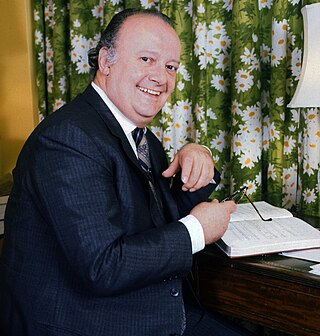
Tito Gobbi was an Italian operatic baritone with an international reputation.

Mirella Freni, OMRI was an Italian operatic soprano who had a career of 50 years and appeared at major international opera houses. She received international attention at the Glyndebourne Festival, where she appeared as Zerlina in Mozart's Don Giovanni and as Adina in Donizetti's L'elisir d'amore.
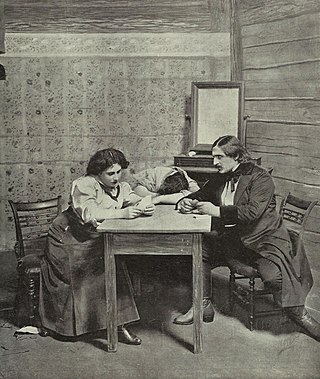
La fanciulla del West is an opera in three acts by Giacomo Puccini to an Italian libretto by Guelfo Civinini and Carlo Zangarini, based on the 1905 play The Girl of the Golden West by the American author David Belasco. Fanciulla followed Madama Butterfly, which was also based on a Belasco play. The opera has fewer of the show-stopping highlights that characterize Puccini's other works, but is admired for its impressive orchestration and for a score that is more melodically integrated than is typical of his previous work. Fanciulla displays influences from composers Claude Debussy and Richard Strauss, without being in any way imitative. Similarities between the libretto and the work of Richard Wagner have also been found though some attribute this more to the original plot of the play, and have asserted that the opera remains quintessentially Italian.

The Festival Puccini is an annual summer opera festival held in July and August to present the operas of the famous Italian composer Giacomo Puccini.

Rosina Storchio was an Italian lyric coloratura soprano who starred in the world premieres of operas by Puccini, Leoncavallo, Mascagni and Giordano.

Union Avenue Opera is an opera company based in St. Louis, Missouri. The company was founded in 1994 by Scott Schoonover, the music director of Union Avenue Christian Church, which serves as the company's venue in St. Louis' Visitation Park neighborhood.
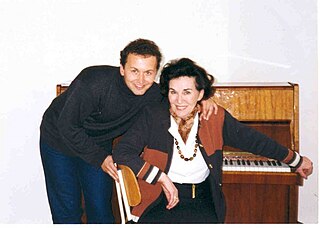
Radmila Bakočević, is a Serbian operatic soprano who had a major international opera career that began in 1955 and ended upon her retirement from the stage in 2004. During her career, she sang at most of the world's important opera houses, including performances throughout Europe, North and South America. She forged important long-term artistic partnerships with two opera houses during her career: the National Theatre in Belgrade and the Vienna State Opera.
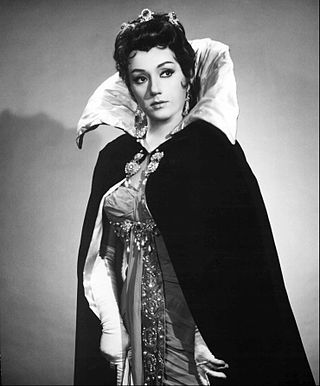
Gabriella Tucci was an Italian operatic soprano who was particularly associated with the Italian repertory and performed at notable opera houses worldwide. She appeared at the Metropolitan Opera in 11 Verdi roles across 13 seasons, including Violetta in La traviata and Desdemona in Otello.

Salvatore Fisichella is an Italian operatic tenor known for his roles in bel canto operas, especially those of Rossini, Donizetti and Bellini. He has been recognized for the ease and vocal brilliance of his singing, and for having sung more of the leading roles in Bellini's operas than any other 20th century tenor.

Giovacchino Forzano was an Italian playwright, librettist, stage and film director. A resourceful writer, he authored numerous popular plays and produced opera librettos for most of the major Italian composers of the early twentieth century, including the librettos for Giacomo Puccini's Suor Angelica and Gianni Schicchi.
Alfredo Costa was an Italian operatic baritone who had an active international career from 1900 until his death in 1913 at the age of 39. He appeared in French and Italian language operas of the 19th century and early 20th century, performing throughout the Italian provinces, and in Brazil, Chile, France, Portugal, Ukraine, and the United States. His voice is preserved on recordings made for Pathé Records in 1908, and for Odeon Records and the Gath & Chaves department store in Buenos Aires.

Alice Zeppilli was a French operatic soprano of Italian heritage who had an active international singing career from 1901 to 1930. The pinnacle of her career was in the United States where she enjoyed great popularity between 1906 and 1914; particularly in the cities of Chicago, New York, and Philadelphia. She was popular in Monte Carlo where she performed frequently from 1904–19 and later worked as a singing teacher after her retirement from the stage. She made only one recording, a phonograph cylinder for Columbia Records consisting of the Gavotte from Jules Massenet's Manon and Olympia's Doll Aria from Jacques Offenbach's The Tales of Hoffmann.
Marina Rebeka is a Latvian soprano, active on both opera and concert stages. Associated with Violetta in Verdi's La traviata, she performs primarily in the 19th-century Italian and French repertoire, most notably works by Gioachino Rossini, in addition to Donna Anna in Mozart's Don Giovanni, another frequent role.
Gemma Bosini was an Italian operatic soprano who had an active international performance career in 1909–1930. She is especially associated with the role of Alice Ford in Giuseppe Verdi's Falstaff, a role which she performed more than 400 times on stage during her career. She is also remembered for being the first soprano to record the role of Mimi in Giacomo Puccini's La boheme in 1917. She also made complete recordings of Gounod's Faust and Lehar's The Merry Widow. After retiring from performance in 1930, she devoted herself to teaching singing and managing the career of her husband, baritone Mariano Stabile.
Ștefan Pop is a Romanian operatic tenor. He is considered among today's leading lyric tenors and he is best known for bel canto repertoire. He has won several prizes including, in 2010, Plácido Domingo's Operalia competition and the Seoul International Music Competition.

Diego Antonio Torre Villegas is a Mexican and Australian opera singer. He is a resident singer in the Sydney Opera House (Australia).

Rame Lahaj is a Kosovar operatic tenor. Among his notable roles are Alfredo, Duke of Mantua (Rigoletto), and Rodolfo.